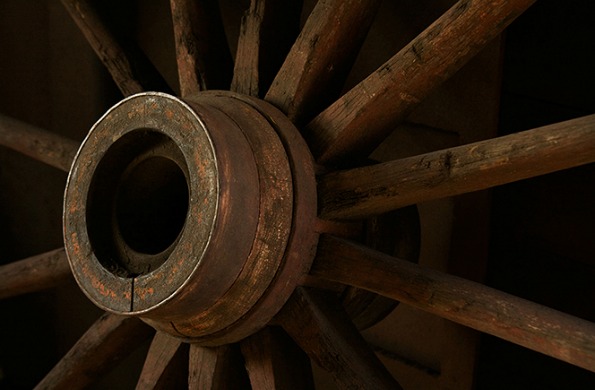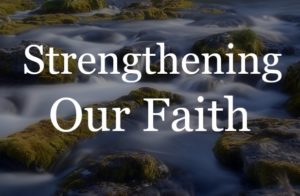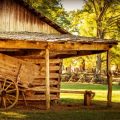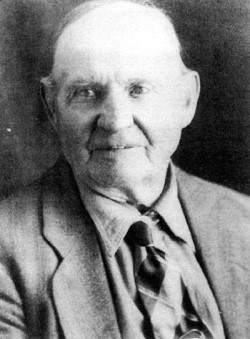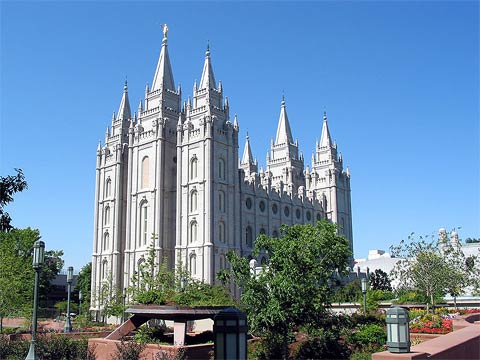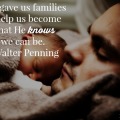July 24th is Pioneer Day, when members of The Church of Jesus Christ of Latter-day Saints (Mormons) celebrate the arrival of the pioneers to the Salt Lake Valley. It used to be that most members of the Church had pioneer ancestors, but the Church has grown significantly.
Now, pioneers are often found in our own generation. Those pioneers are people who have joined the faith in recent years, often at great personal sacrifice. These modern-day pioneers are awesome people, and I admire them. While I have pioneer heritage from the early days of the Church, I’ve often wondered what kind of pioneer I would make. Today, I’m wonder if I am a pioneer. So, what is a pioneer?
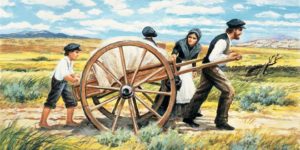 Here’s the dictionary definition of a pioneer:
Here’s the dictionary definition of a pioneer:
1: a member of a military unit usually of construction engineers
2a: a person or group that originates or helps open up a new line of thought or activity or a new method or technical development b: one of the first to settle in a territory
3: a plant or animal capable of establishing itself in a bare, barren, or open area and initiating an ecological cycle
intransitive verb: to act as a pioneer (pioneered in the development of airplanes)
transitive verb
1: to open or prepare for others to follow; also: settle
2: to originate or take part in the development of (Merriam-Webster Online Dictionary, June 19, 2016).
While I have Mormon pioneer ancestry, I’m a convert to the Church because my maternal grandmother left the Church when she was 18 years old. After my maternal grandfather passed away, his good friend sent the missionaries to my parents’ home, and we eventually joined the Church. That does not make me a pioneer, because I believe there is sacrifice involved in pioneering.
There was no sacrifice in my baptism in the Church. I was not ostracized by family or friends. On the contrary, I felt very much supported in my decision. There was occasionally some fun teasing, but there was never anything malicious or mean-spirited about it.
So where was my sacrifice?
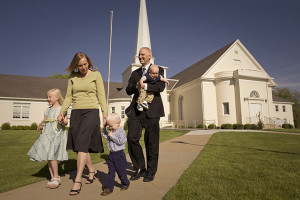 At some point, I walked away from the Church and stayed away 20 years. Eventually, I came back to full activity. I’ve been very public about coming back to Church. I feel it is important for members to understand why people leave, why they come back, and how they want and need to be treated while away and when they return. I also want those who are away to know they are welcome to come back and how it feels to come home.
At some point, I walked away from the Church and stayed away 20 years. Eventually, I came back to full activity. I’ve been very public about coming back to Church. I feel it is important for members to understand why people leave, why they come back, and how they want and need to be treated while away and when they return. I also want those who are away to know they are welcome to come back and how it feels to come home.
It is so important to me to educate both active and not active members about this, that I often speak up about it in Church classes, I’ve taught classes, I’ve spoken in Sacrament meeting (worship service) twice at the request of two different bishops (lay ministers), I’ve written personal blog posts, as well as multiple articles for online magazines, and I’ve been interviewed for a podcast. I’m normally a very private person. I don’t like talking about myself in any capacity. At this point, my whole life is public knowledge. Therein lies my tiny sacrifice “to open or prepare [the way] for others to follow.”
I did not experience persecution and mobs in Missouri and Illinois. I did not experience Malaria draining a swamp to build the city of Nauvoo, Illinois. I did not experience disease at Winter Quarters in Nebraska. I did not walk 1,000 miles across the United States. I did not bury loved ones on the plains in hard ground or in the snow.
I did not leave a home in England, Ireland, Wales, or any other foreign land to be with the members of the Church and practice my religion. I was not ostracized or disowned by family members and friends for becoming a member of the Church. I did not experience any of these things. I did make a tiny sacrifice in comparison. This very introverted and private person opened up my life in a very public way because I felt it was important.
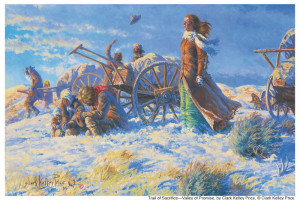 My sacrifice is nothing by comparison. Uncomfortable as it is for me, it is nothing; but it does make me a pioneer. While others in my family have left and come back, I’m the one who has put my life on public display.
My sacrifice is nothing by comparison. Uncomfortable as it is for me, it is nothing; but it does make me a pioneer. While others in my family have left and come back, I’m the one who has put my life on public display.
My progenitors and many others outside my family will be able to read the things I’ve written and have a model for coming back. Equally important, active members will read what I’ve written and hopefully have a better understanding of why people leave, what it feels like, and how they need to be treated.
Although our journeys today are less demanding physically than the trek of our pioneers 150 years ago, they are no less challenging. Certainly it was hard to walk across a continent to establish a new home in a dry western desert. But who can say if that was any more difficult than is the task of living faithful, righteous lives in today’s confusingly sinful world, where the trail is constantly shifting and where divine markers of right and wrong are being replaced by political expediency and diminishing morality.
The road we travel today is treacherous, and the scriptures tell us it will continue to be so until the very end. But our reward will be the same as that which awaits worthy pioneers of all ages who live faithfully the teachings of the Lord Jesus Christ, make right choices, and give their all to build the kingdom of God on earth.
We are the inheritors of a tremendous heritage. Now it is our privilege and responsibility to be part of the Restoration’s continuing drama, and there are great and heroic stories of faith to be written in our day. It will require every bit of our strength, wisdom, and energy to overcome the obstacles that will confront us.
But even that will not be enough. We will learn, as did our pioneer ancestors, that it is only in faith—real faith, whole-souled, tested and tried—that we will find safety and confidence as we walk our own perilous pathways through life (Elder M. Russell Ballard, “You Have Nothing to Fear from the Journey,” Apr. 1997 General Conference).
I’m grateful for my very small part in the story of the restoration. I’m happy to call myself a pioneer. Though my sacrifice is minuscule by comparison, it is real nonetheless. I’m a pioneer of the restoration of the gospel of Jesus Christ.
Watch this short video about pioneers of the past and present.
About Tudie Rose
Tudie Rose is a mother of four and grandmother of ten in Sacramento, California. You can find her on Twitter as @TudieRose. She blogs as Tudie Rose at http://potrackrose.wordpress.com. She has written articles for Familius. You will find a Tudie Rose essay in Lessons from My Parents, Michele Robbins, Familius 2013, at http://www.familius.com/lessons-from-my-parents.
Twitter •

